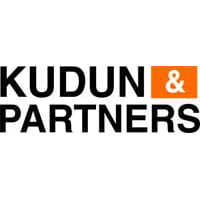
China 2019

Head of legal | Standard Chartered Bank (China)





Daniel Liu
Head of legal | Standard Chartered Bank (China)
Head of legal | Standard Chartered Bank (China)
With roots dating back to 1858, Standard Chartered is the oldest foreign bank in China. The relationship looks set to continue, with the group’s recently appointed global chief executive Bill...
What are the most important transactions and litigations that you have been involved in during the last two years?
The most important transaction is the completion of Standard Chartered Bank’s (SCB) corporate change by creating four hubs globally. SCB China’s shareholder has been changed from SCB UK to SCB HK, making SCB HK the hub for Greater China. The project is complicated and difficult including requiring alignment from different jurisdictions’ regulators in order to obtain their support. The most important litigation is one lawsuit we won at a Beijing court. It took us more than three years to deal with the customer dispute regarding a wealth management product worth a significant amount. The client exposed the dispute to the media, complained to regulators and submitted the case to court. After hearing the debate from both sides, the court finally supported the Bank’s arguments and such a ruling represents the industry trend that guaranteed payment of investment products shall be discouraged.
How do you suggest in-house lawyers build strong relationships with business partners?
As a global bank’s in-house lawyers, we always play the role of “enabler” and “protector”. There are always difficult decisions to make, including saying no to your business partners, but I truly believe legal and business should understand, trust and support each other to achieve the common goal: long term success for the company. I actually encourage my in-house lawyers to stay as close to business partners as much as they can. Some people worry whether being close with business partners will jeopardise legal’s position as an independent risk manager. However, my experience tells me that friends or colleagues that you have good relationship with will always be the first ones to support your decisions, and stand behind you if you face any difficulties.
Have any new laws, regulations or judicial decisions greatly impacted your company’s business or your legal practice?
We have supported many cross-border investments and funding following China’s opening up. However, the US regulators’ long arm jurisdiction, reflected by the US-China trade war, the US’s entity list, investigation against Huawei and the US court’s ruling on Chinese banks’ information disclosure to offshore, results in great uncertainties for commercial banks and their clients. We in-house lawyers therefore find it very challenging to advise our internal or external clients given that long arm jurisdiction always turns out to be policy driven. In the past, an in-house lawyer could always say “sorry I can only advise on PRC law matters because I am PRC law qualified only”. Nowadays this concept has been changed a little bit – at least you need to get the necessary resources from relevant jurisdictions so as to help your clients.
When selecting a law firm, what criteria do you evaluate the potential firms by?
We tend to select a law firm that can provide a one-stop service covering different practice areas, as today’s banking sector is a comprehensive system that requires different skillsets. The increasing legal demand I see in the banking industry is actually not on traditional areas like corporate lending or security perfections, but on those new areas such as FinTech, cross-border solutions, deep tier supply chain financing or digital lending. Accordingly, a law firm with deep understanding of the whole financial market together with its new development will always have an advantage. During our daily communication with law firms, we also maintain good dialogues with our key partner firms because the more they understand our business, the better services they can provide. The long term working relationship is always built on daily discussion and communication.
What would you say are the unique qualities required to be successful as an in-house lawyer in your industry?
A forward-looking view plus a solution-driven mind. I can give an example, our bank is partnering with different FinTech companies to provide innovative financial solutions to our clients such as online lending, block chain financing etc. An in-house lawyer needs to be very open minded and has the capacity and knowledge to make balanced decisions on the most complicated transactions. The best in-house lawyer is not only a legal expert but also a product champion who knows the end-to- end process. I always say producing a transaction contract doesn’t make you a good lawyer since a junior lawyer can record a transaction into legal language. To be a top in-house lawyer, you always need to know the exact structure of the product or transaction and the key risks and pain points therein, and ultimately come out with the solutions that can meet the expectations of both clients and regulators. In other words, you win respect from the business if you know the products and the business more than them.
In what ways do you see the in-house legal role evolving in your region over the next few years?
From a regional perspective, in-house legal shall apply standards that benchmark international law firms, playing the role not only as an independent guardian, but also as a business partner. The financial market has been changing greatly nowadays. While people are cheering for new opportunities, systemic risk of the financial sector’s infrastructure becomes the sword of Damocles that most regulators concern about. In-house legal shall embrace and always prepare to deal with the regulatory changes.
What will be the main focus for the company in the next 12 months and how do you intend to assist with this?
Our bank will focus on sustainable growth in China by supporting China’s new economy and opening up. Onshore, we will invest in new technology and aim to provide innovative solutions to our clients. Offshore, we will leverage our global footprints and assist our client to invest globally, particularly in those OBOR (One Belt One Road) markets. People sometimes ask me why a foreign bank like SCB is so interested in those laws and policies issued by Chinese regulators. The answer is simple: China is sitting at the core of our bank’s global strategy. Our bank can only succeed globally if our Asia region succeeds, and our Asia region can only succeed if China succeeds. We truly believe China is the future with lots of opportunities for both local companies and foreign investors.